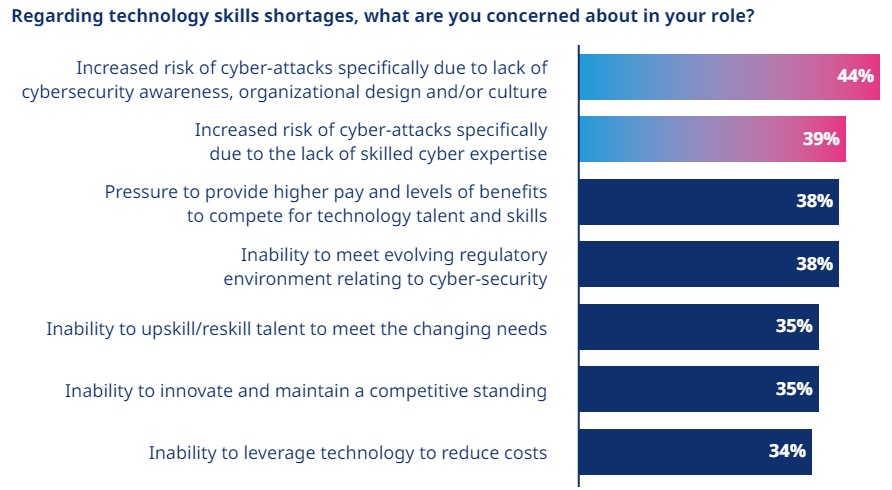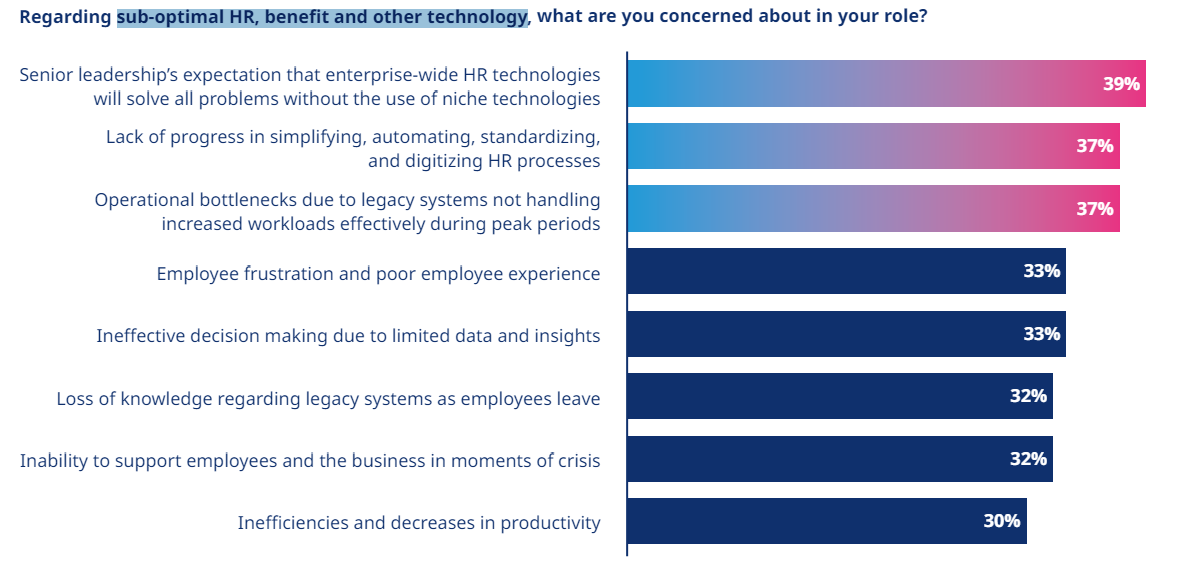
HR technology also important to boost employee benefit experience: report

The global cybersecurity workforce grew 8.7% to 5.5 million people between 2022 and 2023, but that does not completely address the technology skills gap, according to a report from Mercer.
This shortage causes a lot of concern for employers, especially when it comes to cybersecurity.
As a result of the tech skills gap, just 55% of CEOs are very confident about their cyber-risk program and are constantly reviewing new information and making updates accordingly.
Currently, more than half (52%) of technology leaders say they have a skills gap within their department, Robert Half previously reported. And nearly half (48%) of them feel the impact of skills gaps is more apparent today compared to a year ago.
The tech skills gap is also affecting how workers are receiving their benefits, according to Mercer’s survey of 2,283 HR and 2,292 risk professionals globally, conducted between October and November 2023.
Globally, 72% of employees have a good understanding of their benefits, 62% say the system they use to enroll in benefits and access information is easy to use and 57% say their HR technology experience at work is seamless.

Source: Mercer
Among employees who have access to benefits technology, the comparable numbers are 85%, 79% and 77%, respectively. Meanwhile, for those who have no access to such technology, the numbers drop to 64%, 51% and 45%, respectively.
Also, sharing “unencrypted employee census data with benefits and other vendors for administration purposes is still common practice in many markets” and this creates “vulnerabilities that can be easily exploited by third parties,” said Mercer.
The top concerns for HR and risk professionals regarding sub-optimal HR, benefit and other technology are:

Source: Mercer
“Enterprise-wide HR systems are not always well equipped for benefits administration, which may require safeguards such as supplementing platforms with additional niche technologies and automation,” said Mercer.
“Making sure that executives are aware of the potential shortcomings of HR systems is essential. The top concern related to obsolete HR platforms is senior leaderships’ expectations that enterprise-wide technologies will solve all problems without the use of niche technology.”
Three in four employers are concerned they won’t be able to train their employees fast enough to catch up with developing technology, according to a previous report.
Here are some ways employers can address the tech skills gap, according to Robert Half:
Salesforce data previously revealed that 82% of people leaders believe that skills-based experience is highly important when evaluating candidates.